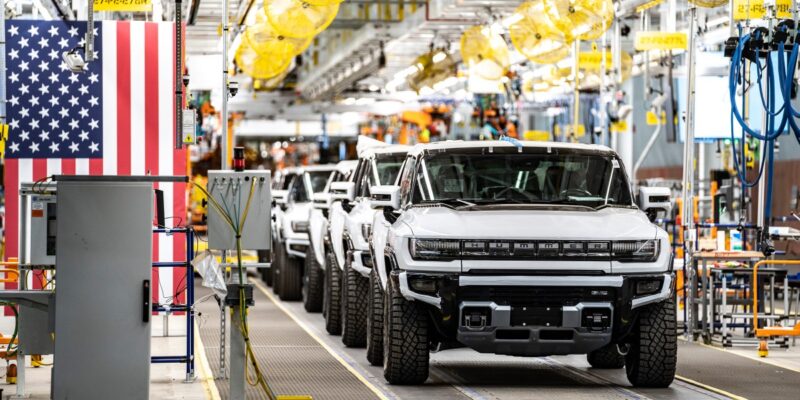
If you’re not driving an electric car yet, you probably will be soon. (Provided, of course, that you drive a car at all.)
The Environmental Protection Agency just proposed two ambitious new regulations that seek to cut vehicle emissions dramatically and ensure that two-thirds of new vehicles sold by 2032 in the US are all-electric. That’s a lot faster than many automakers had planned to transition to electric. The EPA anticipates that the rules could save between $850 billion and $1.6 trillion in climate and health impacts.
The rules do not explicitly say that a certain percentage of vehicles needs to be electric. Instead, they set pollution limits under the Clean Air Act that only electric vehicles are currently able to meet. If automakers could figure out some other way to fuel a car without emissions, that’s fair game, too.
Some critics have called the emissions regulations government overreach, and Republican state attorneys general have already sued the EPA for allowing California to set its own emissions standards. But, as I reported last month, government regulations have historically spurred technological change.
When the EPA mandated emissions reductions in the 1970s, “there was a big outcry from manufacturers because they had very limited technology that was available to them at the time,” John Mohr, a historian of technology at the University of Alabama in Huntsville, told me. But the mandate worked. Cars became more efficient. Automakers were forced to comply, and they invested in creating technology that would allow them to. If you’ve ever had to bring your car in for an emissions test, you can thank the Clean Air Act. And if you live in a city and enjoy good air quality, you can thank the Clean Air Act for that, too.
The EPA’s new rules are a major step in the electric car revolution that has been a long time coming. Still, electric vehicles alone will not fix our country’s transportation system. EVs require environmentally damaging mining; their heavy batteries pose substantial safety risks during collisions; when those batteries go on fire, they’re extremely water-intensive to extinguish; and the dominance of electric cars won’t quell our country’s problematic automobile obsession.
Some occupations will always require a car, and those cars should be electric. But I think if we can make it easier for more people to forgo car ownership—and all its attendant maintenance costs, insurance payments, safety risks, and all-around headaches—all the better.
A version of this article first appeared in the Mother Jones Daily, our newsletter that cuts through the noise to help you make sense of the most important stories of the day. Sign up for free here!















